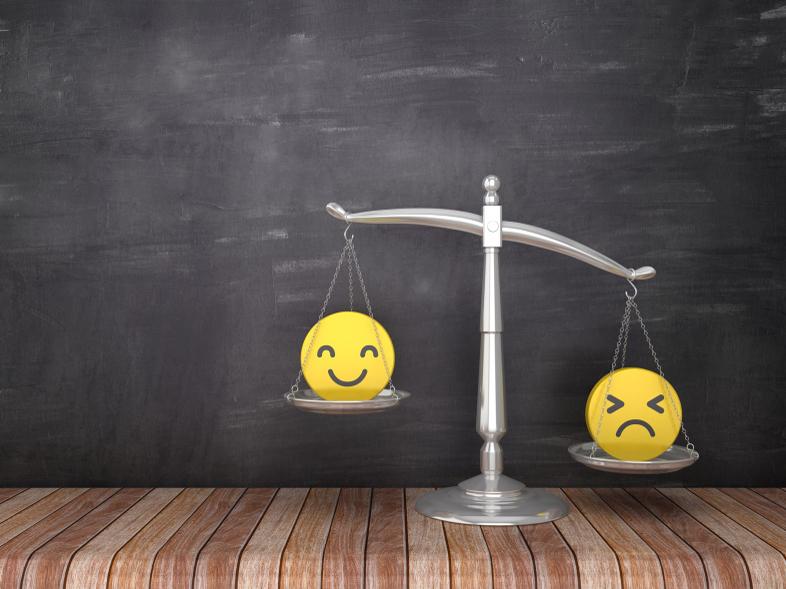A recent report by Maynooth University and Trinity College, COVID-19 Mental Health Survey, highlighted how we are all struggling emotionally with the lockdown. In the report, women were found to be experiencing more anxiety and depression than men. However, men were experiencing more symptoms of post-traumatic stress disorder (PTSD) than women.
There are a number of reasons why this is and it all stems back to the differences between how men and women experience anxiety.
Psychotherapists have a saying: “A mother’s place is in the wrong”. Mothers worry about what to do with their kids from the day they are born and blame themselves for everything negative that happens to them.
It doesn’t matter what it is, things that she has no control over, mothers worry about keeping the family going.
Women deal with their emotions differently to men. They do this by talking to friends and family. By hearing themselves speak, a woman manages to find the balance between what her logical and emotional brain is telling her.
During this time, mothers have become the school teacher, chief motivator and referee of arguments. The list is endless
But all that is changed now. Mothers are having to manage on without their normal support and with a head that keeps telling her it’s her responsibility to protect her brood from every danger and consequence that might occur during lockdown
During this time, mothers have become the school teacher, chief motivator and referee of arguments. The list is endless.
More than she has ever had to do before and without the usual supports, mothers, like the rest of us are finding themselves in a perfect storm, where family and isolation are meeting with their pathological critic.
Pathological critic
Imagine someone standing beside you 24/7 constantly finding things to criticise you about? Well this is what is happening in an average mother’s head when her pathological critic gets loose. Indeed, this is the same thing that happens in the head of any body who gets depressed and anxious.
Isolation means that she hasn’t got other mothers, grandmothers and supports to fall back on
By ignoring or dismissing everything that we might be doing right, our pathological critic gets its power by solely focusing on vague negatives. A mother’s mind doesn’t see what she is doing correctly, but only what she is getting wrong. So, the pathological critic goes rampant in her head.
Isolation means that she hasn’t got other mothers, grandmothers and supports to fall back on, to keep a balance between her critic and reality.
What about the men?
Another reality of life, especially in rural Ireland, is that men are more likely to see themselves as the main provider. Therefore, they get more anxious about the uncertainties of being able to provide an income to support their family.
Learning how to adjust to uncertainty, is the dominant factor in trauma anxiety, hence the reason why men are showing more symptoms of PTSD.
Men cope with their emotions shoulder-to-shoulder
Nevertheless, like women, men are equally susceptible to the charms of the pathological critic, and like women are finding that their usual ways of finding emotional balance are gone.
Men cope with their emotions shoulder-to-shoulder. They join football teams, go to work, etc.
With social distancing, these counter-balancing activities are suspended, leaving both genders vulnerable to our emotions.
What can we do?
Life teaches us to change situations whenever possible and this is how we normally cope.
However, lockdown forces us into learning how to adapt to circumstances over which we have no control, a skill that most of us are not good at practicing.
In surviving the rest of the COVID-19 crisis, never before has it been so important to practice keeping things in perspective.
Practice keeping things in perspective by focusing on each circumstance as it occurs. Dismiss the infinite number of possibilities and focus on real problems.
Once you have identified your pathological critic for being the fiend it is, treat it like your worst enemy
Take each criticism of yourself and challenge it. Ask yourself what exactly you are doing wrong. The more precisely you challenge your pathological critic to be, the vaguer it will get with you. Once you have identified your pathological critic for being the fiend it is, treat it like your worst enemy.
Tell it to bugger off and walk away in your head. Focus on something in front of you.
As an experienced father told me when I became a newbie dad myself; the skill in rearing your kids is to keep them breathing and out of jail. Regard everything else as a bonus.
At the end of this, our kids will still get educated, will learn their own ways of dealing with their siblings and as we all found out 20 years ago, won’t get square eyes from watching too much television.
Read more
Enda Murphy: keep the plane flying
Social cocooning - the new challenge facing rural Ireland
A recent report by Maynooth University and Trinity College, COVID-19 Mental Health Survey, highlighted how we are all struggling emotionally with the lockdown. In the report, women were found to be experiencing more anxiety and depression than men. However, men were experiencing more symptoms of post-traumatic stress disorder (PTSD) than women.
There are a number of reasons why this is and it all stems back to the differences between how men and women experience anxiety.
Psychotherapists have a saying: “A mother’s place is in the wrong”. Mothers worry about what to do with their kids from the day they are born and blame themselves for everything negative that happens to them.
It doesn’t matter what it is, things that she has no control over, mothers worry about keeping the family going.
Women deal with their emotions differently to men. They do this by talking to friends and family. By hearing themselves speak, a woman manages to find the balance between what her logical and emotional brain is telling her.
During this time, mothers have become the school teacher, chief motivator and referee of arguments. The list is endless
But all that is changed now. Mothers are having to manage on without their normal support and with a head that keeps telling her it’s her responsibility to protect her brood from every danger and consequence that might occur during lockdown
During this time, mothers have become the school teacher, chief motivator and referee of arguments. The list is endless.
More than she has ever had to do before and without the usual supports, mothers, like the rest of us are finding themselves in a perfect storm, where family and isolation are meeting with their pathological critic.
Pathological critic
Imagine someone standing beside you 24/7 constantly finding things to criticise you about? Well this is what is happening in an average mother’s head when her pathological critic gets loose. Indeed, this is the same thing that happens in the head of any body who gets depressed and anxious.
Isolation means that she hasn’t got other mothers, grandmothers and supports to fall back on
By ignoring or dismissing everything that we might be doing right, our pathological critic gets its power by solely focusing on vague negatives. A mother’s mind doesn’t see what she is doing correctly, but only what she is getting wrong. So, the pathological critic goes rampant in her head.
Isolation means that she hasn’t got other mothers, grandmothers and supports to fall back on, to keep a balance between her critic and reality.
What about the men?
Another reality of life, especially in rural Ireland, is that men are more likely to see themselves as the main provider. Therefore, they get more anxious about the uncertainties of being able to provide an income to support their family.
Learning how to adjust to uncertainty, is the dominant factor in trauma anxiety, hence the reason why men are showing more symptoms of PTSD.
Men cope with their emotions shoulder-to-shoulder
Nevertheless, like women, men are equally susceptible to the charms of the pathological critic, and like women are finding that their usual ways of finding emotional balance are gone.
Men cope with their emotions shoulder-to-shoulder. They join football teams, go to work, etc.
With social distancing, these counter-balancing activities are suspended, leaving both genders vulnerable to our emotions.
What can we do?
Life teaches us to change situations whenever possible and this is how we normally cope.
However, lockdown forces us into learning how to adapt to circumstances over which we have no control, a skill that most of us are not good at practicing.
In surviving the rest of the COVID-19 crisis, never before has it been so important to practice keeping things in perspective.
Practice keeping things in perspective by focusing on each circumstance as it occurs. Dismiss the infinite number of possibilities and focus on real problems.
Once you have identified your pathological critic for being the fiend it is, treat it like your worst enemy
Take each criticism of yourself and challenge it. Ask yourself what exactly you are doing wrong. The more precisely you challenge your pathological critic to be, the vaguer it will get with you. Once you have identified your pathological critic for being the fiend it is, treat it like your worst enemy.
Tell it to bugger off and walk away in your head. Focus on something in front of you.
As an experienced father told me when I became a newbie dad myself; the skill in rearing your kids is to keep them breathing and out of jail. Regard everything else as a bonus.
At the end of this, our kids will still get educated, will learn their own ways of dealing with their siblings and as we all found out 20 years ago, won’t get square eyes from watching too much television.
Read more
Enda Murphy: keep the plane flying
Social cocooning - the new challenge facing rural Ireland










SHARING OPTIONS